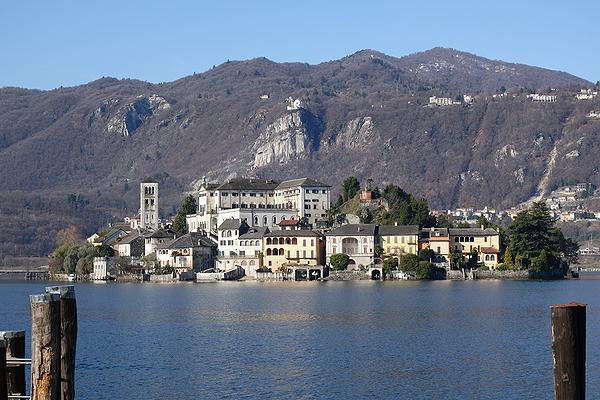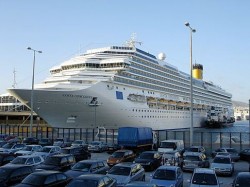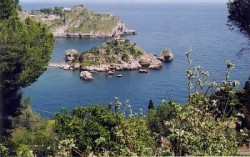ITALY CHRONICLES
Latest Posts

New! Italy Photo Contests – Show Off Your Photos of Italy
If you, like me, you think Italy is extremely photogenic, you might be interested to hear that Italy Chronicles is to run photo contests. The
Italian Politics – Still a Mess
Here’s a roundup stroke overview of what’s going on in the decidedly odd world of Italian politics. Broadly, there are three political factions in Italy,
Wild Boar Hunting in Italy
Ever thought about wild boar hunting in Italy? Maybe not but perhaps you might like to. Italy has a bit of a problem with wild
Berlusconi Heart
On Thursday in Italy headlines were dominated by the news that Silvio Berlusconi, a former and controversial prime minister, required an urgent heart operation and had
Money People – The World’s Biggest Problem
What’s that old saying? Ah yes, “money is the root of all evil”. From what is happening in Italy and elsewhere around the world, there
Italian Politics – Still a Mess
Here’s a roundup stroke overview of what’s going on in
Wild Boar Hunting in Italy
Ever thought about wild boar hunting in Italy? Maybe not
Berlusconi Heart
On Thursday in Italy headlines were dominated by the news
Money People – The World’s Biggest Problem
What’s that old saying? Ah yes, “money is the root
Italy
Berlusconi’s Marriage Fails
Veronica Lario, the wife of Italian prime minister Silvio Berlusconi, announced that she wants to leave her media mogul husband.

Costa Concordia Disaster: List of Passengers and Crew Still Missing
A list of Costa Concordia passengers and crew who remain missing from Italian newspaper Il Messeggero today. It is to be hoped the people on
Silvio Berlusconi’s Lies – 15 Years of Them
As Silvio Berlusconi, the man with the winning smile, seeks re-election, or so the rumor goes, and it has not been denied yet, it seems
Is Press Freedom about to be Limited in Italy?
Not too long ago, in fact just after Berlusconi won the elections, I spoke to a journalist who works for a major Italian newspaper, and
What Have Italy and Egypt Got in Common?
Both nations share the same assets: Brilliant people, and both suffer from the same problem: a rotten system. “Brilliant people, rotten system,” was the poignant
Recent Events and Italy’s Ferguson
Last week was, as usual, rather hectic and peppered with announcements from Italy’s vociferous prime minister. Italy’s Prime Minister is forging ahead with announcements, if
Italy’s Slot Machine Mania Delights the Mafia
They are everywhere. No self-respecting Italian cafe or coffee bar
Luxury in Venice
If there is one special place that is worth devoting
Properties
House For Sale near Milan
Gaetano Salvo, friend and Blog from Italy researcher wants to sell his house. For those who might be interested, or may know of someone or

How to Find Property for Rent in Italy
Maybe you are coming to Italy to work or study here for a while, in which case, you’ll need somewhere to live. If that’s the

The Admirable Admiral’s Villa in Taormina
If you know your history pretty well, you may be aware that one of England’s most celebrated Admirals possessed a rather charming villa in the scenic Sicilian town of Taormina.

How to Find Property for Rent in Italy
Maybe you are coming to Italy to work or study here for a while, in which case, you’ll need somewhere to live. If that’s the

The Admirable Admiral’s Villa in Taormina
If you know your history pretty well, you may be aware that one of England’s most celebrated Admirals possessed a rather charming villa in the scenic Sicilian town of Taormina.
Places to stay in Italy
Villa Miller Bed and Breakfast, Puglia, Italy
Located well off the main road in the depths of the Puglia countryside, Villa Miller the only sounds which disturb guests are those of the crickets and the ringing of the bells worn by the areas cow and sheep population.
Casa Villatalla B&B, Liguria
By far the most important members of the Casa Villatalla household are Nellie (an elderly but loveable chocolate Labrador), Bonnie, a fluffy and rather scatty American Spaniel, and Pickle, aneccentric cat who walks like John Wayne.
Chaplin Bed and Breakfast Rome
Perfectly located in a safe and quiet but extremely central Rome neighborhood, the Chaplin Bed and Breakfast Rome is the ideal base for your Roman holiday.
Villa Miller Bed and Breakfast, Puglia, Italy
Located well off the main road in the depths of the Puglia countryside, Villa Miller the only sounds which disturb guests are those of the crickets and the ringing of the bells worn by the areas cow and sheep population.
Casa Villatalla B&B, Liguria
By far the most important members of the Casa Villatalla household are Nellie (an elderly but loveable chocolate Labrador), Bonnie, a fluffy and rather scatty American Spaniel, and Pickle, aneccentric cat who walks like John Wayne.

